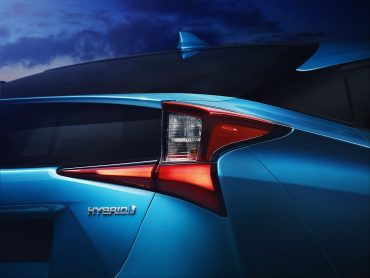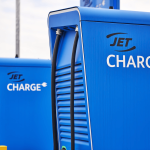
- Mobility Tech
Toyota Hits 15 Million Hybrid Sales Since Prius Launch
5 minute read

Pioneering Automaker Reaches Environmental Milestone with Hybrid Sales Spanning Two Decades of Innovation
Three Key Facts
- Toyota achieved 15 million hybrid vehicle sales since launching the Prius in 1997, representing nearly 20% of the company’s global sales
- The automaker sold approximately 1.52 million hybrid vehicles in 2019 alone, demonstrating accelerating consumer adoption
- Hybrid technology leadership positions Toyota at the forefront of the automotive industry’s shift toward sustainable transportation solutions
Introduction
Toyota reaches a historic milestone that solidifies its position as the automotive industry’s hybrid technology leader. The Japanese automaker announces the sale of its 15 millionth hybrid vehicle, a achievement that spans over two decades of innovation and market development.
This milestone represents far more than a sales figure. It demonstrates Toyota’s successful transformation of hybrid technology from an experimental concept into mainstream automotive reality, fundamentally reshaping consumer expectations and industry standards for sustainable transportation.
Key Developments
Toyota’s hybrid journey began with the Prius launch in 1997, introducing consumers to a new category of environmentally conscious vehicles. The company has systematically expanded its hybrid portfolio across multiple vehicle segments, from compact cars to SUVs and luxury models.
According to Google News, the 15 million sales milestone represents nearly 20% of Toyota’s global vehicle sales. This substantial market share demonstrates the technology’s successful integration into the company’s broader manufacturing strategy.
The acceleration in hybrid adoption becomes evident through recent sales figures. Toyota sold approximately 1.52 million hybrid vehicles in 2019 alone, indicating growing consumer acceptance and demand for fuel-efficient alternatives to conventional gasoline engines.
Market Impact
Toyota’s hybrid success creates ripple effects throughout the automotive industry. Competitors increasingly develop their own hybrid technologies, validating Toyota’s early investment in this powertrain approach and expanding the overall market for electrified vehicles.
The substantial investment Toyota made in hybrid technology infrastructure now provides competitive advantages as environmental regulations tighten globally. Manufacturing expertise, supply chain relationships, and technical knowledge accumulated over decades position the company to capitalize on accelerating demand for sustainable transportation options.
Consumer behavior shifts toward environmental consciousness drive market dynamics favoring hybrid technology. Toyota’s established reputation in this segment attracts buyers seeking to reduce their carbon footprint without sacrificing vehicle performance or reliability.
Strategic Insights
Toyota’s approach demonstrates the value of long-term technological commitment despite initial market skepticism. The company maintained hybrid development investment through periods when consumer demand remained limited, ultimately establishing market leadership when adoption accelerated.
The automaker’s strategy extends beyond current hybrid models to encompass plug-in hybrids and all-electric vehicles. This diversified electrification approach provides multiple pathways for consumers transitioning away from conventional gasoline engines, accommodating varying infrastructure availability and driving patterns.
Integration of hybrid technology with broader digital transformation initiatives reflects industry evolution toward connected, intelligent vehicles. Toyota incorporates advanced materials, manufacturing processes, and software development capabilities that enhance hybrid system efficiency and user experience.
Expert Opinions and Data
Shigeki Terashi, Toyota’s executive vice president, articulates the company’s environmental commitment: “Our goal is to reduce CO2 emissions with our full lineup of electrified vehicles.” This statement reflects Toyota’s strategic positioning around sustainability as a core business driver rather than peripheral consideration.
Industry analysis suggests Toyota’s hybrid leadership provides significant advantages as automotive markets globally implement stricter emissions standards. The company’s manufacturing scale and technical expertise create barriers for competitors attempting to match hybrid system performance and cost effectiveness.
The automotive sector’s digital transformation mirrors broader technology industry trends, where cybersecurity, artificial intelligence, and connected services become integral to product development. Toyota’s hybrid vehicles increasingly incorporate these technological elements, demonstrating convergence between automotive and technology sectors in pursuing efficiency and optimization through advanced systems integration.
Conclusion
Toyota’s 15 million hybrid vehicle milestone validates the company’s pioneering investment in sustainable automotive technology. The achievement demonstrates successful market transformation from experimental concept to mainstream consumer choice, establishing Toyota as the definitive hybrid technology leader.
This milestone represents both historical achievement and foundation for continued innovation in electrified transportation. Toyota’s sustained commitment to hybrid development creates competitive positioning that benefits from accelerating global demand for environmentally conscious mobility solutions.








